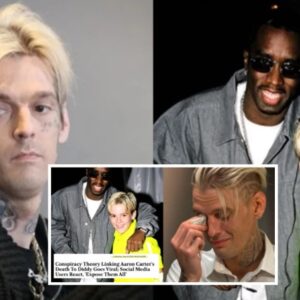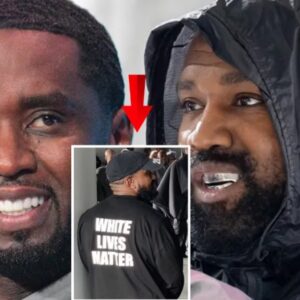In a Shocking Twist: James Woods Takes Aim at Whoopi Goldberg, Labels Her as One of the Most Detestable TV Personalities
In a surprising and heated exchange that has captured the attention of the media and fans alike, actor James Woods has publicly criticized actress and talk show host Whoopi Goldberg, calling her one of the “most detestable TV personalities.” This unexpected clash has reignited discussions about celebrity culture, political discourse, and the responsibilities of public figures in today’s divisive climate.
The Context of the Controversy
James Woods, known for his sharp wit and often controversial opinions, has never shied away from speaking his mind. His recent remarks about Whoopi Goldberg stem from a series of public statements she made on her talk show, The View, which Woods found particularly objectionable. In a recent episode, Goldberg addressed various political issues and social justice topics, prompting Woods to take to social media to voice his disdain.
“Whoopi Goldberg has become a caricature of herself,” Woods tweeted, declaring, “She’s one of the most detestable personalities on television today.” His comments quickly went viral, sparking intense debate among fans and commentators.
Whoopi’s Response
Whoopi Goldberg, a veteran of the entertainment industry and a prominent voice on social issues, was swift to respond to Woods’ accusations. In a statement made during The View, she expressed her disappointment, saying, “It’s sad that people feel the need to tear others down instead of engaging in meaningful dialogue. We should be lifting each other up.”
Goldberg’s response highlights the ongoing tension between public figures who adopt polarizing stances and those who advocate for open conversation and understanding. Her stance reflects a broader desire in the entertainment industry to promote unity and dialogue rather than division.
The Role of Celebrity in Political Discourse
This clash between Woods and Goldberg underscores a significant trend in contemporary culture: the intersection of celebrity and political discourse. As public figures increasingly use their platforms to address social and political issues, they often find themselves at the center of heated debates.
Woods, who has been vocal about his conservative views, represents a segment of the entertainment industry that feels marginalized by the prevailing liberal narratives often promoted by mainstream media. His criticisms of Goldberg resonate with fans who share his perspective and feel that their voices are often drowned out in the current political climate.
Conversely, Goldberg embodies a more progressive viewpoint, advocating for social justice and equality. This dichotomy reveals the challenges faced by celebrities who choose to speak out: they risk alienating segments of their audience while also engaging in essential conversations about societal issues.
The Impact on Audience Perception
The exchange between Woods and Goldberg reflects a larger phenomenon in which audiences increasingly align themselves with celebrities based on their political beliefs. Fans of Woods may appreciate his candidness and willingness to challenge established figures, while supporters of Goldberg may admire her commitment to advocacy and social change.
This polarization not only affects individual careers but also shapes the broader entertainment landscape. As audiences become more segmented, the potential for meaningful dialogue diminishes, leading to an environment where opinions are often entrenched and resistant to change.
The Media’s Role in the Narrative
The media plays a crucial role in amplifying these celebrity conflicts, often sensationalizing disputes for clicks and views. The coverage surrounding Woods’ comments has sparked a flurry of articles and discussions, many of which focus on the personal attacks rather than the underlying issues at stake.
This focus on sensationalism can overshadow the more substantive debates that could arise from such clashes. Instead of fostering a conversation about the responsibilities of public figures or the nuances of political discourse, the media often highlights the drama, creating a cycle of conflict that can detract from meaningful dialogue.
The Broader Implications for Society
The feud between Woods and Goldberg serves as a microcosm of the current state of political discourse in America. As public figures engage in increasingly hostile exchanges, the potential for constructive conversation diminishes. This trend can contribute to a culture of division, where individuals are more likely to retreat into echo chambers that reinforce their beliefs rather than challenge them.
For many, this situation raises questions about the role of celebrities as influencers. Should they engage in political discourse, and if so, how can they do so responsibly? The responsibility to promote understanding and dialogue lies not only with celebrities but also with their audiences, who must be willing to engage with differing viewpoints.
Conclusion
James Woods’ sharp criticism of Whoopi Goldberg marks a significant moment in the ongoing discourse surrounding celebrity culture and political engagement. As both figures embody contrasting perspectives, their clash highlights the challenges of navigating a polarized landscape. While the exchange may have been fueled by personal animosities, it ultimately reflects broader societal issues regarding communication, representation, and the responsibilities of public figures.
As the conversation continues, it is essential for both celebrities and audiences to strive for a more nuanced understanding of the complex issues at play. Engaging in meaningful dialogue, rather than resorting to personal attacks, can pave the way for a more constructive and inclusive discourse in the future. In an era where celebrity voices carry immense weight, the way they choose to engage with one another—and with the public—can significantly impact the culture at large.




